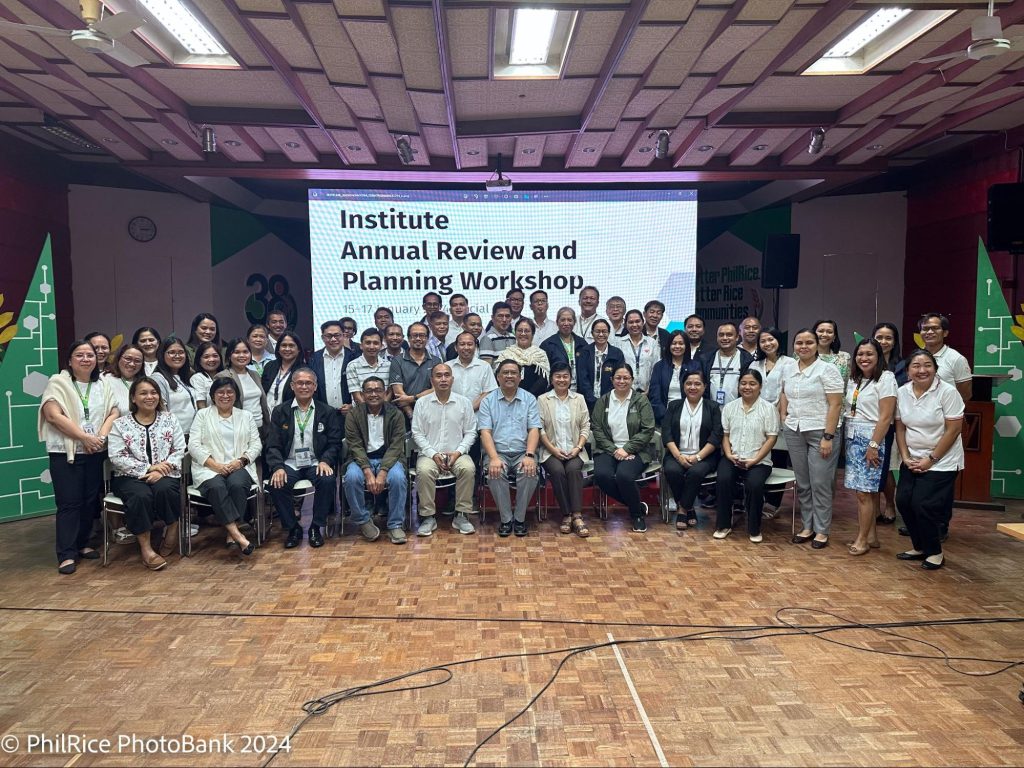
The PhilRice management has finalized details of its 2023-2028 operational plan during its Annual Review and Planning Workshop at its Central Experiment Station in Nueva Ecija, Jan. 15-17.
Focusing on improved productivity and income for prosperous rice farming communities; better consumer access to affordable, safe and nutritious rice; and stable rice supply, the plan includes implementing innovative farming technologies, improving the rice seed system, and linking farmers to market.
It also includes, among other outputs, distribution of high quality seeds of inbred and public hybrid varieties, organized farmers’ engagement in rice and rice-based agroenterprises, and commercialized farm machinery/postharvest and other technologies.
Nutritious rice and rice-based products will also be made available; digital technologies, platforms, and big data analytics will be developed and promoted; and extension support, education, and services that reach the next-users will be provided.
It was also emphasized during the workshop to pursue blockbuster innovations in R4DE for focus and impact in addressing the industry’s challenges such as climate change and resource scarcity.
Climate-smart adaptation mechanisms will be identified and mainstreamed; new technologies as future sources of growth will be developed; and policy recommendations will be advocated.
Dr. John de Leon, executive director, further enjoined his team to contribute ideas to Secretary Francisco Tiu Laurel’s three-year plan to boost the agriculture and fisheries sector. Recently, the secretary outlined the DA’s plan, addressing key challenges in local agriculture, focusing on expansion, modernization, and logistics.
The plan involves the development of efficient logistics systems and a robust digitalization strategy to ensure accurate production data for effective supply chain management.
“In our three-year plan, we’re investing over PhP90 billion in upgrading rice and corn post-harvest facilities. Four decades of neglect in this area have led to significant losses, estimated at 12.7% to 15% of rice production. We aim to rectify these shortcomings,” Laurel said.
He added that the department will establish new irrigation facilities, zoning, and identification of key areas, and improve infrastructures to boost production in land and water areas.




